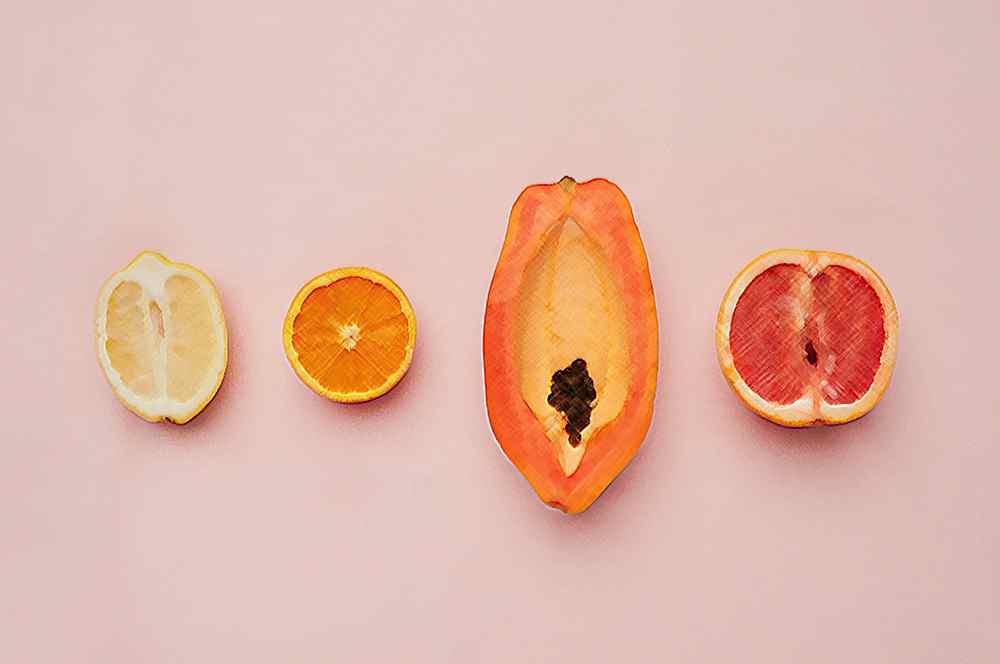
It is important to understand that there is no such thing as a "perfect" or "normal" way for a vagina to look. Every woman's body is unique and there is a wide range of normal variation in the appearance of genitalia.
However, there are a few things you can do to promote the overall health and appearance of your vaginal area.
Practice good hygiene
Keep the area clean and dry, and avoid using harsh soaps or perfumed products that can irritate the delicate skin in the area.
Hygiene for your vag to look younger
Good hygiene is important for maintaining vaginal health and preventing infections. Here are some tips on how to maintain proper hygiene for your vaginal area:
-
Wash your vaginal area regularly: Use warm water and a gentle, unscented soap to clean your vaginal area. Avoid using harsh soaps or perfumed products that can irritate the delicate skin in the area.
-
Wipe from front to back: Always wipe from front to back after using the bathroom to avoid spreading bacteria from the anus to the vaginal area.
-
Wear breathable clothing: Wear breathable, cotton underwear and loose-fitting clothing to allow air to circulate in the vaginal area.
-
Change pads and tampons regularly: Change your pads or tampons regularly during your menstrual cycle to avoid bacterial growth and unpleasant odor.
-
Practice safe sex: Use condoms or other forms of protection during sexual activity to prevent sexually transmitted infections that can cause vaginal infections and unpleasant odor.
-
Avoid douching: Douching can upset the natural balance of bacteria in the vagina and lead to infections.
-
Keep the area dry: After showering or swimming, make sure to dry your vaginal area thoroughly to avoid moisture buildup that can lead to infections.
It's important to note that the vagina is a self-cleaning organ and does not need excessive cleaning. Over-washing or using harsh products can actually cause irritation and upset the natural balance of bacteria in the vaginal area. If you have any concerns or questions about vaginal hygiene, it's always a good idea to speak with your healthcare provider.
Stay hydrated
Drinking plenty of water can help keep your skin hydrated and healthy-looking.
How drinking water helps vagina?
Drinking water is important for maintaining overall health, and it can also help promote vaginal health in a few ways:
-
Hydration: Drinking plenty of water can help keep the body hydrated, which is important for maintaining healthy skin and tissue throughout the body, including the vaginal area.
-
Lubrication: Staying hydrated can also help promote natural lubrication in the vaginal area, which can help prevent discomfort during sexual activity and reduce the risk of vaginal tears or irritation.
-
Urinary tract health: Drinking water can also help promote urinary tract health by flushing out bacteria and toxins that can cause infections, such as urinary tract infections (UTIs).
It's important to note that drinking water alone is not a cure for vaginal health issues, and if you are experiencing any discomfort or symptoms, it's important to speak with your healthcare provider. They can help determine if there is an underlying condition that requires medical treatment.
Eat a healthy diet
Eating a balanced diet that includes plenty of fruits, vegetables, and whole grains can help promote overall health, including the health of your skin.
What diet is healthy for your vag
Eating a healthy and balanced diet can help promote overall health, including the health of the vaginal area. Here are some dietary recommendations that can promote vaginal health:
-
Probiotic-rich foods: Probiotic-rich foods such as yogurt, kefir, and fermented vegetables contain "good" bacteria that can help promote a healthy balance of bacteria in the vaginal area.
-
Fruits and vegetables: Eating a diet rich in fruits and vegetables can provide essential vitamins and nutrients that support overall health, including the health of the vaginal area.
-
Whole grains: Eating whole grains such as brown rice, quinoa, and whole-wheat bread can provide important nutrients and help regulate blood sugar levels, which can be beneficial for vaginal health.
-
Lean proteins: Eating lean proteins such as chicken, fish, and beans can provide important nutrients such as iron and zinc, which are important for overall health and can also support vaginal health.
It's important to note that while a healthy diet can help promote vaginal health, it is not a replacement for medical treatment if you are experiencing any discomfort or symptoms. If you have any concerns or questions about your vaginal health, it's always a good idea to speak with your healthcare provider.
Exercise regularly
Regular exercise can help improve circulation and promote overall health.
How does exercise help vagina look better?
Exercise can help promote overall health, including the health of the vaginal area. Regular exercise can help increase blood flow to the pelvic area, which can help maintain healthy tissue and support sexual function. In addition, regular exercise can help strengthen the pelvic floor muscles, which can improve bladder control and prevent urinary incontinence.
While exercise can have many benefits for vaginal health, it's important to note that the appearance of the vaginal area can vary from person to person and can be influenced by a variety of factors such as genetics, aging, and hormonal changes. Exercise alone is not likely to significantly change the appearance of the vaginal area.
It's also important to note that if you experience discomfort or pain during exercise, particularly in the pelvic area, you should speak with your healthcare provider. They can help determine if there is an underlying condition that requires medical treatment.
Use protection during sexual activity
Using condoms or other forms of protection during sexual activity can help prevent sexually transmitted infections that can lead to changes in the appearance of the vaginal area.
How condoms affect vagina appearance
Using condoms during sexual activity is an important way to protect against sexually transmitted infections (STIs) and unwanted pregnancy. Condoms themselves do not typically have a direct impact on the appearance of the vaginal area.
However, some individuals may experience allergic reactions or irritation from the materials used in condoms, such as latex or spermicide. This can cause redness, itching, and discomfort in the vaginal area. If you experience any of these symptoms, it's important to speak with your healthcare provider. They can help determine if you have an allergy or sensitivity to the materials used in condoms and recommend alternative options for protection during sexual activity.
It's important to note that the appearance of the vaginal area can vary from person to person and can be influenced by a variety of factors such as genetics, aging, and hormonal changes. The use of condoms is not likely to significantly impact the appearance of the vaginal area.
To conclude
If you are concerned about the appearance of your genitalia or experiencing any discomfort, it's important to talk to your healthcare provider. They can provide you with guidance and help determine if any medical treatment is necessary.
These tips can help to maintain vaginal health, which can help promote the overall appearance of the vaginal area. It's important to remember that every woman's body is unique, and if you have any concerns or questions about the appearance of your genitalia, it's always a good idea to speak with your healthcare provider.
Sources
-
American College of Obstetricians and Gynecologists (ACOG) – "Vulvovaginal Health": https://www.acog.org/womens-health/faqs/vulvovaginal-health
-
Mayo Clinic – "Vaginal Health: How to Keep Your Vagina Healthy": https://www.mayoclinic.org/healthy-lifestyle/womens-health/in-depth/vagina/art-20046562
-
Cleveland Clinic – "Vaginal Health: How to Keep Your Vagina Healthy": https://health.clevelandclinic.org/vaginal-health-how-to-keep-your-vagina-healthy/
-
National Institute of Child Health and Human Development (NICHD) – "Vaginal and Vulvar Health": https://www.nichd.nih.gov/health/topics/vaginal-and-vulvar-health
-
Women's Health Concern – "The Menopause and Vaginal Health": https://www.womens-health-concern.org/help-and-advice/factsheets/menopause-vaginal-health/

Written by Michael Zippo
Michael Zippo, passionate Webmaster and Publisher, stands out for his versatility in online dissemination. Through his blog, he explores topics ranging from celebrity net worth to business dynamics, the economy, and developments in IT and programming. His professional presence on LinkedIn - https://www.linkedin.com/in/michael-zippo-9136441b1/ - is a reflection of his dedication to the industry, while managing platforms such as EmergeSocial.NET and theworldtimes.org highlights his expertise in creating informative and timely content. Involved in significant projects such as python.engineering, Michael offers a unique experience in the digital world, inviting the public to explore the many facets online with him.
